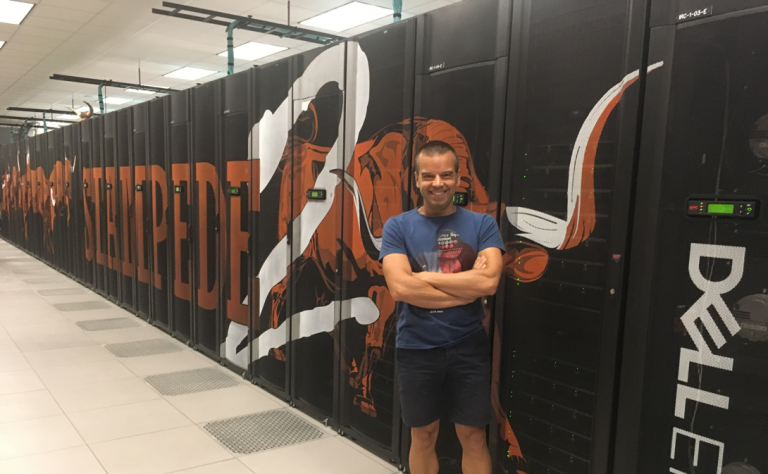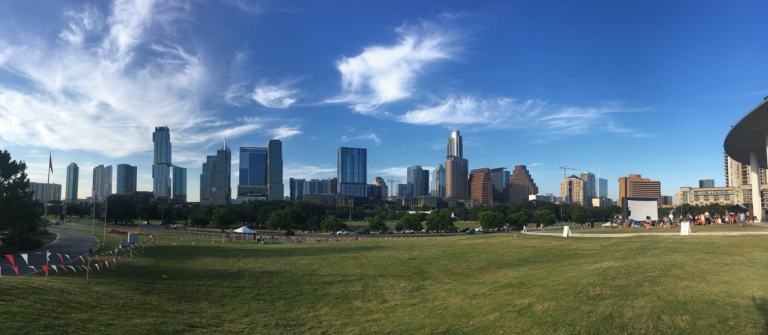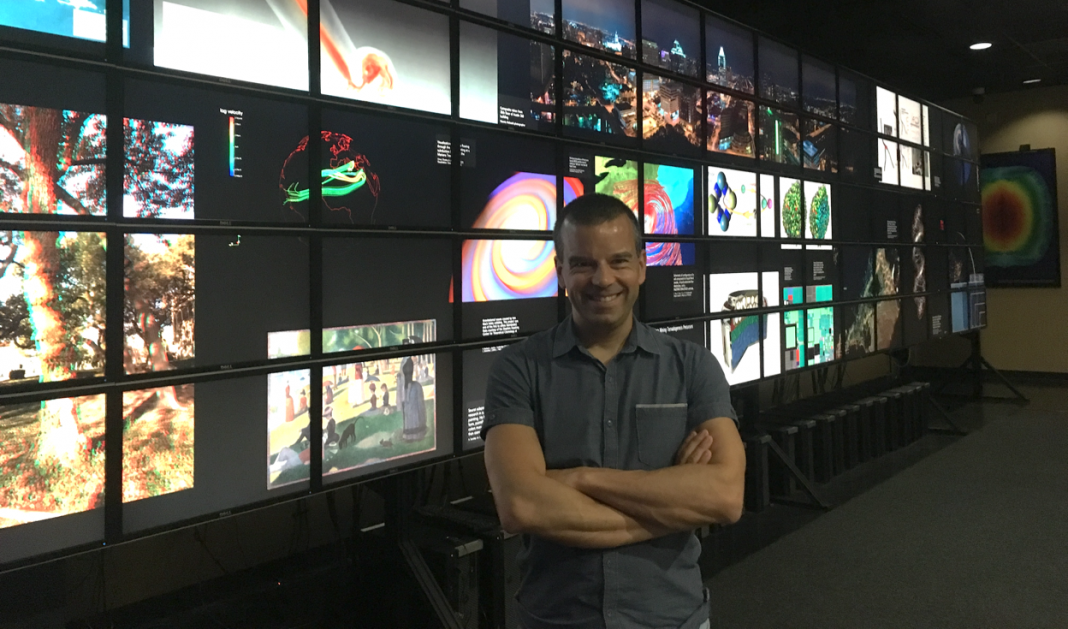Discover more about this Portuguese professor’s experience while doing his summer advanced training at the Texas Advanced Computing Center (TACC).
During the last 12 years as an Assistant Professor at the Department of Electronics, Telecommunications and Informatics of the University of Aveiro (UA), António Neves has carried out research efforts that have enabled him to broaden his horizons, from Robotics and Intelligent Systems to bioinformatics. Looking to further learn and experience enriching new environments, he applied for the Advanced Computing Training Program, offered by the UT Austin Portugal Program.
“Being part of this program will allow me to have a different perspective on other research institutions. I consider this application an opportunity to contribute to shape the future of UA in terms of research innovations and collaborations”, António stated when we first talked to him, before embarking on this adventure.
For the last three months, the Portuguese professor studied and developed research at TACC, where he joined the Visualization group. Now, having returned from Austin, Texas, we talked to António about the whole experience.
– What motivated you to apply for the Advanced Computing Training Program?
Over the last 15 years, I have been using computers in my research in order to solve complex problems in the signal and image processing field, with applications in robotics and intelligent systems. Despite several collaborations, all this research has been conducted at the University of Aveiro, Portugal, so I was searching for an international experience that would allow me to have a different perspective, not only on my research challenges, but also on the internal organization of other research institutions. I had the idea that this program could translate into collaborations that could benefit both institutions, the University of Aveiro and The University of Texas.
– Tell us more about the research work you conducted while at TACC and the research team you worked with.
I integrated the Visualization Group under the supervision of Paul A. Navrátil. I also worked closely with João Barbosa from the Scalable Visualization Group, Gregory Foss with research interests on Scientific Data Visualization, and Zhao Zhang with research interests on Machine Learning and Data Mining. I worked on two tasks: 1) calculate low-level features on images generated by in-situ visualization processes using path tracing technology that can be relevant to improve the visualization process and reduce the computational complexity; 2) study and develop a solution for image compression that could be used to efficiently transmit images from the in-situ visualization on HPC systems to high resolution displays, like the TACC’s Stallion system, one of the world’s highest resolution tiled-displays.

– In what way was participating in this training program important to your current research? And how do you think it will impact your work moving forward?
Besides working on the tasks mentioned above, I was able to take four TACC summer institute courses: ‘Essentials of Advanced Computing’, ‘Scientific Visualization’, ‘Science in the cloud’ and ‘Machine Learning and Frontera’. These courses gave me the opportunity to learn more about the systems, software, research tools and methodologies used at TACC and I hope to put all of this knowledge into practice on my research and teaching activities. Moreover, some of the research problems I encounter nowadays revolve around the fact that my work deals with a huge amount of images that have to be processed by Machine Learning algorithms and thus, a considerable computational power is needed. At TACC, I was able to understand that my research challenges can be pushed forward using the HPC infrastructures.
– How would you describe the experience of living and working at Austin?
TACC is the home of some of the world’s most powerful High Performance Computing (HPC) infrastructures. They have the most powerful open science HPC in the world and recently their new computer Frontera, was ranked #5 HPC in the world on the biannual Top500 list. Moreover, TACC has a very interesting team, well organized and always ready to help everyone, so my professional experience was quite amazing. Regarding the city of Austin, I considered it huge in area, as everything else in the state of Texas. However, they have a good public transportation system that is free for people with a UT card. There are lots of green spaces and cultural activities in a regular basis. People are warm, friendly and curious about you, but I consider that their culture is very different from Portugal.

– What would you say to future participants of the Advanced Computing Training Program? Any advice(s)?
To me, this application was an opportunity to contribute to shape, not only my personal knowledge, but also the future of our Universities and Research Units in terms of research innovation and collaborations. I advise people to try to contact the research group of their interest before starting their journey in order to prepare their research plan as soon as possible. Time passes really fast and with so many new things to learn, you have the impression that your research work does not evolve as you would like. To future participants, I say enjoy the city and be prepared for the long distances to reach anywhere, and also the very hot weather during the summer. Do not forget to try their BBQ. Embrace the experience and enjoy the cultural differences, it will be amazing.
– What are your expectations for the future?
To me the Advanced Computing Training Program was a unique opportunity to get in touch with state-of-the-art tools on High Performance Computing and Scientific Visualization. The experience at TACC enriched my understanding of good research practices and opened a door for possible future collaborations. Still during my stay at TACC, we started the preparation of a collaborative project that allows me to use the TACC HPC systems to move forward with my research problems and, together, achieve better results.

